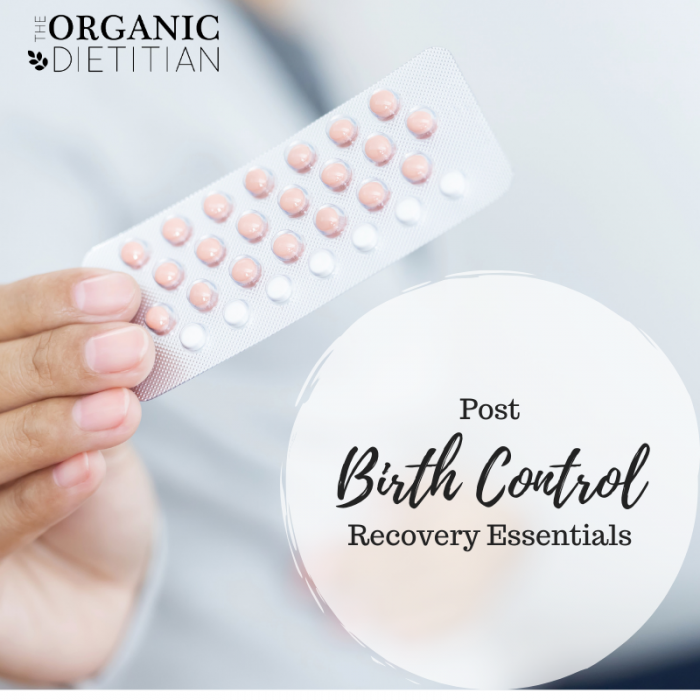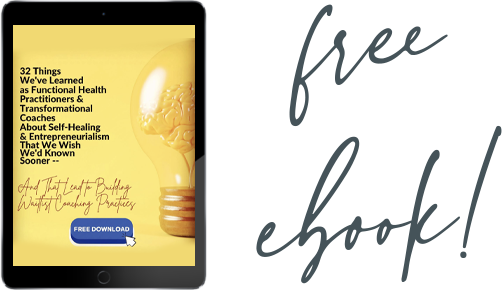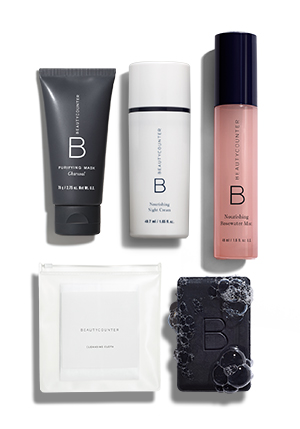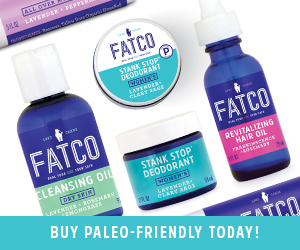15 October, 2020
Post-birth control recovery essentials

If you recently stopped taking hormonal birth control and are now experiencing acne, mood swings, or digestive issues, and your period seems to come and go with no respect for any sort of schedule whatsoever — possibly for the first time ever — you’re not alone. Not enough practitioners are aware of how to help us through post birth control recovery.
The transition off hormonal birth control isn’t always smooth. In fact, it can be downright miserable for some women. I know many women that are afraid to go off birth control for fear of these all to common symptoms. I personally experienced terrible acne post pill which is ironic because I went on it in the first place for acne management.
But it doesn’t need to be this way!
And no, the solution isn’t to run to the pharmacy and refill your old prescription. (Well, at least not the best solution.)
Instead, we want to provide your body with everything it needs to recover quickly and smoothly, and support your body’s own production of hormones again.
How does hormonal birth control work?
The hormones in the pill work to stop ovulation. This means there’s no egg for sperm to fertilize, so pregnancy can’t occur.
Hormonal birth control suppresses your body’s own production of sex hormones, then provides your body with a steady stream of synthetic hormones. This is why it’s so commonly prescribed to women with hormonal imbalances — it creates a synthetic balance.
After you stop the pill, your body is able to produce its own hormones at normal levels again. But again, this transition isn’t always smooth.
Hormonal birth control can impact your body beyond hormones as well.
The negative side effects of hormonal birth control
If you take or have taken hormonal birth control, chances are that you weren’t properly warned about any side effects beyond blood clotting.
Me neither. I took hormonal birth control for over 15 years and was never told about ANY of these possible side effects.
But the science makes it clear that hormonal birth control impacts our bodies beyond fertility!
Related: 6 Things I Wish I Knew Before Going on Birth Control
Mood and mental health
But a study from the University of Copenhagen confirmed the link between hormonal birth control and depression. This study included 1 million women over the course of 13 years. The study found that women were 23-34% more likely to be diagnosed with depression. (source)
This is not surprising given the strong connection between our hormones and mood.
The gut microbiome
The synthetic estrogen in hormonal birth control has been shown to negatively impact gut flora (source).
Not only can changes in the gut microbiome impact digestive health and trigger symptoms like diarrhea, constipation, gas, and bloating, but it can have far-reaching consequences as well like suppressed immune function and inflammation.
We know that the pill also increases the risk of inflammatory bowel diseases like Crohn’s disease — two large studies of American women linked oral contraceptive use with Crohn’s (source). Researchers believe this increased risk stems from impaired gut flora and increased intestinal permeability (leaky gut).
Liver health
Estrogens and oral contraceptives are both associated with several liver-related complications.
Unfortunately, a compromised liver that can’t properly perform its over 500 vital functions (yes, 500!) is going to have a negative impact on hormonal health — in addition to detoxing toxins and wastes, the liver detoxes excess and used hormones as well, and so is key for hormonal balance,
Nutrient deficiencies
Studies comparing the nutrient levels of women taking hormonal birth control to those who do not have found that the pill significantly depletes a number of key nutrients:
- Vitamins B1, B2, B3, B6, B12, folic acid
- Vitamin C
- Vitamin E
- Magnesium
- Selenium
- Zinc
Even the World Health Organization states that clinicians should be supplementing vitamins and minerals in women on hormonal birth control! (source)
“Post Birth Control Syndrome”
Yes, this is a very real thing! And thank goodness it’s getting more and more attention, even in the medical community. However many are still denying it.
Because unfortunately, Post Birth Control Syndrome affects many women (I myself experienced it). Not only are their bodies coping with the side effects of hormonal birth control, but they’re also now in the process of creating their own hormones at normal levels again.
Symptoms typically show up between 3 and 6 months after stopping hormonal birth control, and can look like:
- Amenorrhea (loss of menstruation)
- Heavy, painful periods
- Hypothyroidism
- Acne
- Migraines
- Headaches
- Hair loss
- Depression and anxiety
- Blood sugar imbalances
- Gas and bloating
- Changes in bowel movements (diarrhea or constipation)
- Gut dysbiosis
- Inflammation
- Unintended weight gain or weight loss
But as mentioned earlier, it doesn’t need to be this way!
Post-birth control recovery essentials
Whether you’re struggling with Post Birth Control Syndrome or looking to support your body while still on hormonal birth control, these essentials will take you very far.
Replenish nutrients
Eating a nutrient-dense, real food diet is the best and surest way to provide your body with a wide variety of nutrients. However, supplementation can help accelerate healing and fill in gaps, and is often necessary when transitioning off hormonal birth control.
Again, studies have found that hormonal birth control depletes a number of key nutrients:
- Vitamins B1, B2, B3, B6, B12, folate
- Vitamin C
- Vitamin E
- Magnesium
- Selenium
- Zinc (I prefer food sources over supplements)- Related Post: Supplements You Might Want to Reconsider)
I, however, am not a fan of multi-vitamins because I don’t think they are customized enough to you as an individual. They are often very poor quality and contain poorly absorbed forms of nutrients, they may contain things for you that do more harm than good, and they may contain too much of one nutrient or not enough of another.
Instead work with someone that will be able to run a Hair Tissue Mineral Analysis (HTMA) test with you to help determine exactly what nutrients you need. We run one of these tests with all our clients. Also make sure your diet is full of well absorbed nutrients and your gut is optimized to ensure proper breakdown and absorption.
Consider copper toxicity
Speaking of HTMA testing, another good reason to work with someone even after going off birth control is assessing copper toxicity.
Many will have you believe that copper toxicity is not a very common issue but in my experience it is much more common and can lead to numerous symptoms and health problems. See a full list of symptoms here.
“The copper problem has significantly worsened in the years since the birth control pill was introduced. Since that time, more and more females have become copper toxic (and we see this with the evidence provided through HTMA data).
“The birth control pill affects copper by way of estrogen. Anything that raises estrogen (as birth control often does) increases copper retention.”
“The estrogenic effect of the oral contraceptive pill, combined with the fact that the synthetic progesterone does not have a true progesterone effect, means that minerals such as magnesium, zinc, and B6 diminish while copper rises.”
Related Post: The Complete Guide to Copper Toxicity
Support your natural hormone production
Hormonal health can get complex, but it’s best to always start with the foundations:
- Minimize stress and include stress-reduction in your daily routine
- Work to keep blood sugar levels balanced with each meal
- Limit caffeine intake (try my Homemade Herbal Coffee recipe)
- Move daily but rest when needed
- Optimize your circadian rhythm and using natural light to support healthy hormones
Related Post: Your Autonomic Nervous System: A Missing Piece to Your Health Journey and 10 Key Steps to Nourish Your Body’s Circadian Rhythm
Restoring gut health
Since hormonal birth control has a particular impact on the gut microbiome, it is an essential part of recovery post birth control even if you don’t feel like you have obvious digestive symptoms.
Addressing your digestive health is way more than just taking a probiotic or finding and killing bugs. Your gut is part of your enteric nervous system which is part of your autonomic nervous system. The brain and gut are highly connected and in order to heal one you must also heal the other.
I support you every step of the way in this process in my Heal Your Gut for Good Group Program.
Related: Common Causes of Stomach Bloating + 5 First Steps to Beat the Bloat
Support your liver
Since the liver detoxes excess and used hormones, it’s absolutely essential for healthy, balanced hormones.
Did you know that the gut is one of the biggest sources of internal toxicity in the body? You can’t detox your way to better health if you don’t also optimize your gut health. This is also where nervous system regulation comes into play because when we are under stress the body goes into survival mode and in turn shuts down things like detoxification to conserve energy. The best detox we can often do is to support our emotional health.
You can also keep your liver healthy with these 5 support tools.
Are you struggling with Post Birth Control Syndrome?
You can learn more about working with the Organic Dietitian team here.
Now let’s keep the conversation going in the comments below!
Do you currently take hormonal birth control?
Have you in the past?
Did this post help shine light on anything in particular?
Which steps will you start putting into place to support balance during or after birth control?
Any questions?
Please let us know we can continue supporting you in your health journey!










Went off the pill after 22years in april. Regular normal periods but struggling with heart-pulpitations at times..almost like a flush of adrenaline. And on top of that had a cold and cough for 3 weeks now that has cleared up im struggling with post nasal drip for the 2nd week in a row. Without having ANY sinus issues etc.
So frustrated. I dont want to feel like this at 43 years young..started with b complex, vitex and magnesium
Sorry to hear that. Know that supplements alone are rarely a fix but also making sure you are using what is right for you. The pill can so a lot of damage that takes time to address. Feel free to apply to work with us is you are looking for support.